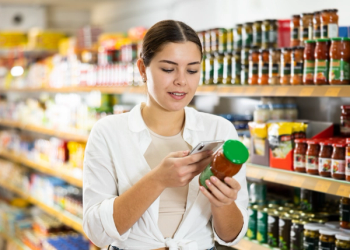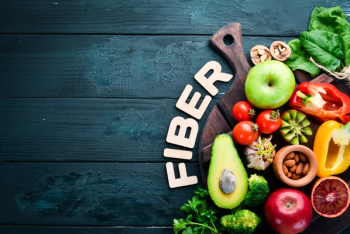
- Nutritional Outlook Vol. 23 No. 3
- Volume 23
- Issue 3
Plant-based yogurt keeps getting better
Continued innovation of dairy alternatives has made plant-based yogurt a viable and delicious option.
One of the quintessential foods that comes from dairy is yogurt. Consumers enjoy yogurt as a healthy snack that can also support their digestive health through probiotic content. With the growing demand for plant-based alternatives to popular dairy and meat-based products, ingredient suppliers and product manufacturers have been working hard to create great-tasting plant-based yogurt products that compete with the real thing.
Consumers want the option. According to recent consumer research from ingredient supplier Cargill (Minneapolis, MN), based on the responses of 840 U.S. respondents, about 50% of shoppers consume both dairy and dairy alternatives, with about 12% being true dairy avoiders1. Among shoppers, 49% cite great taste as an important attribute influencing the purchase of plant-based yogurts, meaning that many are not willing to sacrifice flavor for the perceived health benefits of plant-based foods.
Yogurts in particular can be difficult for plant-based products manufacturers to replicate. “Dairy proteins provide so much functionality, and they have a very clean flavor profile,” explains Christine Addington, Cargill’s senior dairy technical service specialist. “Further complicating formulation, plant proteins are less soluble than dairy proteins, which can result in a gritty mouthfeel.”
Many manufacturers use plant-based fats to replicate the creamy mouthfeel, for example, adding high amounts of coconut oil, cocoa butter, or palm kern oil, says Addington. However, in order to keep the fat content low, hydrocolloids and starches also create acceptable mouthfeel. “Hydrocolloids and starches are also extremely helpful in preventing syneresis,” she explains. “We’ve also found fibers, like chicory root fiber, can help with texture and mouthfeel.”
Syneresis is the expulsion of liquid from a gel. This can occur in dairy yogurt when whey collects on the surface of yogurt, but is less desirable in plant-based applications, particularly when it occurs over the product’s shelf life. “Because plant-based proteins function differently than dairy proteins, syneresis is a much greater concern,” says Addington. “Starches help absorb the excess water that seeps out over shelf life, while also contributing to the creamy mouthfeel consumers expect.”
In a prototype, explains Addington, Cargill was able to create a plant-based yogurt starting with coconut cream, then used Puris-brand pea protein, a SimPure functional native starch blend, and pectin to control syneresis and create the rich, creamy texture.
Some textures, however, are more difficult to replicate than others. A good example is the popular Greek yogurt, whose texture Addington explains is a result of the way milk is cultured.
“Traditionally, Greek dairy yogurt is made with milk that has been cultured to form curds, then strained or separated,” she explains. “The culturing coagulates the dairy proteins, which are strained to concentrate solids in the yogurt’s white mass. The result is a very thick, velvety texture.” Creating curds is not really an option for plant-based applications; therefore, manufacturers will increase the fat content to replicate the texture and mouthfeel of Greek yogurt.
Sugar content is another important attribute to consider. According to Cargill’s recent report on plant-based yogurts, 9.2 grams is the preferred threshold for sugar content in yogurt2. Using alternative sweeteners such as stevia and erythritol can offer significant sugar reductions. In a prototype, Cargill was able to create a yogurt with 70% less sugar using its ViaTech stevia leaf extract and Zerose erythritol.
References:
- Cargill white paper. “The shifting global dairy market: ushering in a new era of dairy products.” (2018) Accessed at: https://www.cargill.com/doc/1432126152938/dairy-white-paper-2018.pdf
- Cargill white paper. “Plant-based yogurts are catching more consumers’ eyes.” (2020) Accessed at: https://www.cargill.com/doc/1432157757643/plant-based-yogurts.pdf
Articles in this issue
over 5 years ago
6 Sports drink trends to watchover 5 years ago
Sports adulteration concerns, from eSports to CBDover 5 years ago
Defending Vitamins: What’s wrong with the science?over 5 years ago
The next stage of sports nutritionover 5 years ago
Be Smart: Brain-health supplement claims Dos and Don’tsover 5 years ago
Esports enthusiasts target dietary supplements to up their gameNewsletter
From ingredient science to consumer trends, get the intel you need to stay competitive in the nutrition space—subscribe now to Nutritional Outlook.





